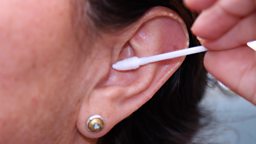How do I stop snoring?
No one knows exactly how many of us snore, but it’s a growing problem. It can cause discomfort and sleep loss not just in the snorer themselves but also those around them – and in extreme cases it has even led to marriage breakdowns.

Why do we snore?
Snoring is caused by the vibration of soft tissue in your head and neck as you breathe in and out during sleep. This soft tissue is found in your nasal passages, your tonsils and the roof of your mouth.
When you sleep your airways relax and narrow and the air has to be pushed through – causing this vibration of the soft tissue.
So what can we do about it?
The key to stopping snoring is to keep those airways open – and there are a variety of techniques recommended.
Avoid alcohol
Alcohol causes muscles to relax more than usual during sleep - and therefore your airway compresses and narrows even more. So it’s advised that you avoid alcohol before bed.
Lie on your side
When you lie on your back your tongue, chin and fatty tissue under your chin can all constrict your airway. So try to sleep on your side.
Nasal strips
There’s a whole selection of commercial anti-snoring products available in the pharmacy. The idea behind nasal strips is that they hold you nostrils open – if you snore through your nose. But the evidence that these work is thin on the ground.
Clear your nose
If you have a cold and your nose is blocked then you are more likely to snore. So try to clear your nose before bed by giving it a good blow – and you could try a nasal decongestant. These reduce swelling in the tiny blood vessels in your nose that happen when you have an infection or an allergy, and can give very quick relief from a stuffed-up nose.
Lose weight
If you are overweight then you have more fatty tissue around your chin and neck that can squeeze the airway and make it narrow. So maintaining a healthy weight can let the air flow in and out freely and help prevent snoring.
Interactive guide






























